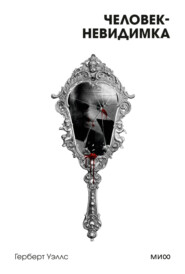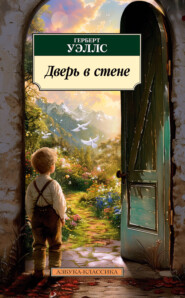По всем вопросам обращайтесь на: info@litportal.ru
(©) 2003-2024.
✖
Mr. Britling Sees It Through
Настройки чтения
Размер шрифта
Высота строк
Поля
His mind and conscience made a valiant attempt to pick up "And Now War Ends" and go on with it, but before five minutes were out he was back at the thoughts of food panic and bankruptcy…
§ 5
The conflict of interests at Mr. Britling's desk became unendurable. He felt he must settle the personal question first. He wandered out upon the lawn and smoked cigarettes.
His first conception of a great convergent movement of the nations to make a world peace and an end to militant Germany was being obscured by this second, entirely incompatible, vision of a world confused and disorganised. Mrs. Fabers in great multitudes hoarding provisions, riotous crowds attacking shops, moratorium, shut banks and waiting queues. Was it possible for the whole system to break down through a shock to its confidence? Without any sense of incongruity the dignified pacification of the planet had given place in his mind to these more intimate possibilities. He heard a rustle behind him, and turned to face his wife.
"Do you think," she asked, "that there is any chance of a shortage of food?"
"If all the Mrs. Fabers in the world run and grab – "
"Then every one must grab. I haven't much in the way of stores in the house."
"H'm," said Mr. Britling, and reflected… "I don't think we must buy stores now."
"But if we are short."
"It's the chances of war," said Mr. Britling.
He reflected. "Those who join a panic make a panic. After all, there is just as much food in the world as there was last month. And short of burning it the only way of getting rid of it is to eat it. And the harvests are good. Why begin a scramble at a groaning board?"
"But people are scrambling! It would be awkward – with the children and everything – if we ran short."
"We shan't. And anyhow, you mustn't begin hoarding, even if it means hardship."
"Yes. But you won't like it if suddenly there's no sugar for your tea."
Mr. Britling ignored this personal application.
"What is far more serious than a food shortage is the possibility of a money panic."
He paced the lawn with her and talked. He said that even now very few people realised the flimsiness of the credit system by which the modern world was sustained. It was a huge growth of confidence, due very largely to the uninquiring indolence of – everybody. It was sound so long as mankind did, on the whole, believe in it; give only a sufficient loss of faith and it might suffer any sort of collapse. It might vanish altogether – as the credit system vanished at the breaking up of Italy by the Goths – and leave us nothing but tangible things, real property, possession nine points of the law, and that sort of thing. Did she remember that last novel of Gissing's? – "Veranilda," it was called. It was a picture of the world when there was no wealth at all except what one could carry hidden or guarded about with one. That sort of thing came to the Roman Empire slowly, in the course of lifetimes, but nowadays we lived in a rapider world – with flimsier institutions. Nobody knew the strength or the weakness of credit; nobody knew whether even the present shock might not send it smashing down… And then all the little life we had lived so far would roll away…
Mrs. Britling, he noted, glanced ever and again at her sunlit house – there were new sunblinds, and she had been happy in her choice of a colour – and listened with a sceptical expression to this disquisition.
"A few days ago," said Mr. Britling, trying to make things concrete for her, "you and I together were worth five-and-twenty thousand pounds. Now we don't know what we are worth; whether we have lost a thousand or ten thousand…"
He examined his sovereign purse and announced he had six pounds. "What have you?"
She had about eighteen pounds in the house.
"We may have to get along with that for an indefinite time."
"But the bank will open again presently," she said. "And people about here trust us."
"Suppose they don't?"
She did not trouble about the hypothesis. "And our investments will recover. They always do recover."
"Everything may recover," he admitted. "But also nothing may recover. All this life of ours which has seemed so settled and secure – isn't secure. I have felt that we were fixed here and rooted – for all our lives. Suppose presently things sweep us out of it? It's a possibility we may have to face. I feel this morning as if two enormous gates had opened in our lives, like the gates that give upon an arena, gates giving on a darkness – through which anything might come. Even death. Suppose suddenly we were to see one of those great Zeppelins in the air, or hear the thunder of guns away towards the coast. And if a messenger came upon a bicycle telling us to leave everything and go inland…"
"I see no reason why one should go out to meet things like that."
"But there is no reason why one should not envisage them…"
"The curious thing," said Mr. Britling, pursuing his examination of the matter, "is that, looking at these things as one does now, as things quite possible, they are not nearly so terrifying and devastating to the mind as they would have seemed – last week. I believe I should load you all into Gladys and start off westward with a kind of exhilaration…"
She looked at him as if she would speak, and said nothing. She suspected him of hating his home and affecting to care for it out of politeness to her…
"Perhaps mankind tries too much to settle down. Perhaps these stirrings up have to occur to save us from our disposition to stuffy comfort. There's the magic call of the unknown experience, of dangers and hardships. One wants to go. But unless some push comes one does not go. There is a spell that keeps one to the lair and the old familiar ways. Now I am afraid – and at the same time I feel that the spell is broken. The magic prison is suddenly all doors. You may call this ruin, bankruptcy, invasion, flight; they are doors out of habit and routine… I have been doing nothing for so long, except idle things and discursive things."
"I thought that you managed to be happy here. You have done a lot of work."
"Writing is recording, not living. But now I feel suddenly that we are living intensely. It is as if the whole quality of life was changing. There are such times. There are times when the spirit of life changes altogether. The old world knew that better than we do. It made a distinction between weekdays and Sabbaths, and between feasts and fasts and days of devotion. That is just what has happened now. Week-day rules must be put aside. Before – oh! three days ago, competition was fair, it was fair and tolerable to get the best food one could and hold on to one's own. But that isn't right now. War makes a Sabbath, and we shut the shops. The banks are shut, and the world still feels as though Sunday was keeping on…"
He saw his own way clear.
"The scale has altered. It does not matter now in the least if we are ruined. It does not matter in the least if we have to live upon potatoes and run into debt for our rent. These now are the most incidental of things. A week ago they would have been of the first importance. Here we are face to face with the greatest catastrophe and the greatest opportunity in history. We have to plunge through catastrophe to opportunity. There is nothing to be done now in the whole world except to get the best out of this tremendous fusing up of all the settled things of life." He had got what he wanted. He left her standing upon the lawn and hurried back to his desk…
§ 6
When Mr. Britling, after a strenuous morning among high ideals, descended for lunch, he found Mr. Lawrence Carmine had come over to join him at that meal. Mr. Carmine was standing in the hall with his legs very wide apart reading The Times for the fourth time. "I can do no work," he said, turning round. "I can't fix my mind. I suppose we are going to war. I'd got so used to the war with Germany that I never imagined it would happen. Gods! what a bore it will be… And Maxse and all those scaremongers cock-a-hoop and 'I told you so.' Damn these Germans!"
He looked despondent and worried. He followed Mr. Britling towards the dining-room with his hands deep in his pockets.
"It's going to be a tremendous thing," he said, after he had greeted Mrs. Britling and Hugh and Aunt Wilshire and Teddy, and seated himself at Mr. Britling's hospitable board. "It's going to upset everything. We don't begin to imagine all the mischief it is going to do."
Mr. Britling was full of the heady draught of liberal optimism he had been brewing upstairs. "I am not sorry I have lived to see this war," he said. "It may be a tremendous catastrophe in one sense, but in another it is a huge step forward in human life. It is the end of forty years of evil suspense. It is crisis and solution."
"I wish I could see it like that," said Mr. Carmine.
"It is like a thaw – everything has been in a frozen confusion since that Jew-German Treaty of Berlin. And since 1871."
"Why not since Schleswig-Holstein?" said Mr. Carmine.
"Why not? Or since the Treaty of Vienna?"
"Or since – One might go back."
"To the Roman Empire," said Hugh.
"To the first conquest of all," said Teddy…
"I couldn't work this morning," said Hugh. "I have been reading in the Encyclopædia about races and religions in the Balkans… It's very mixed."
"So long as it could only be dealt with piecemeal," said Mr. Britling. "And that is just where the tremendous opportunity of this war comes in. Now everything becomes fluid. We can redraw the map of the world. A week ago we were all quarrelling bitterly about things too little for human impatience. Now suddenly we face an epoch. This is an epoch. The world is plastic for men to do what they will with it. This is the end and the beginning of an age. This is something far greater than the French Revolution or the Reformation… And we live in it…"
He paused impressively.

















